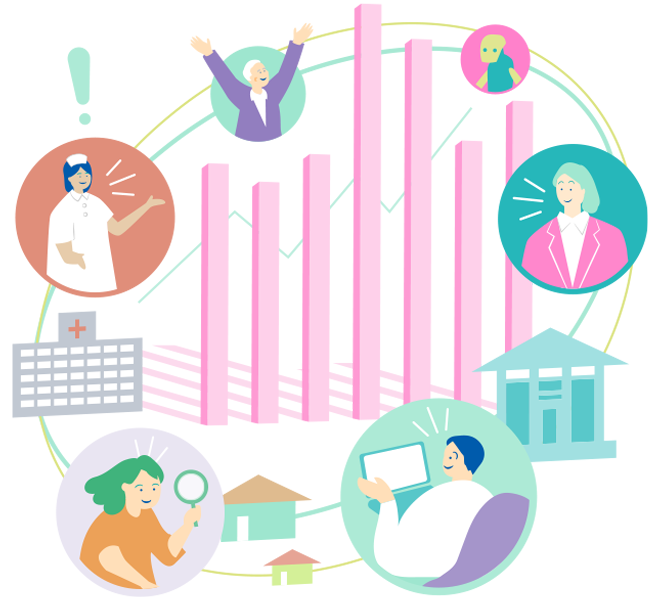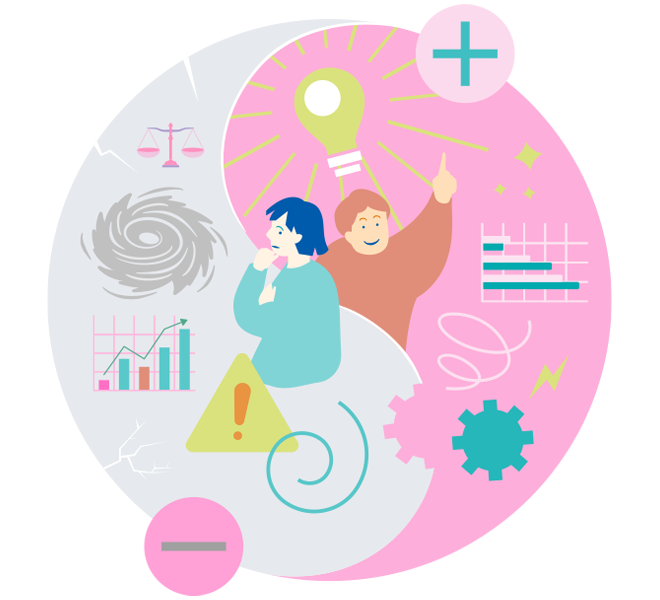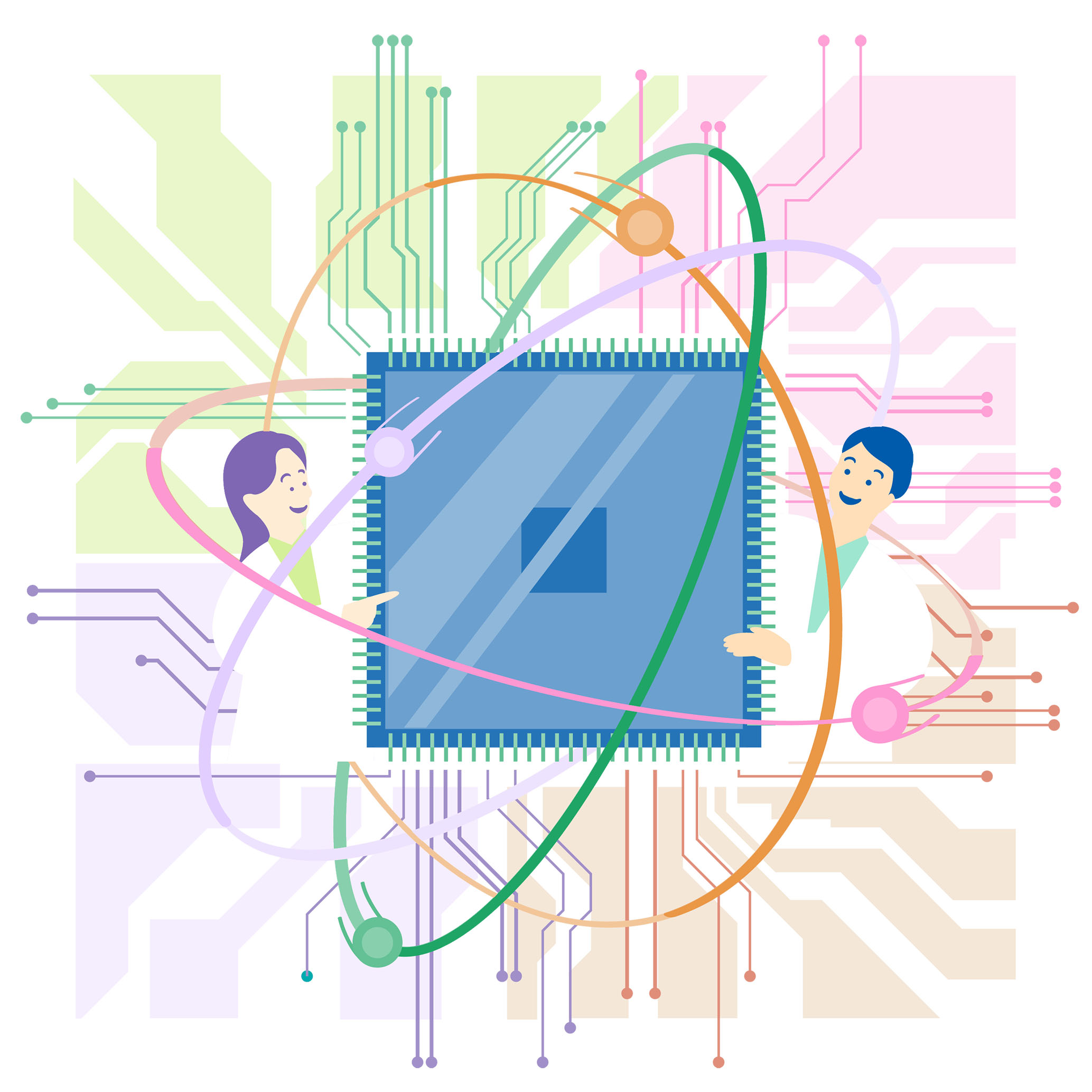Research Theme
-

Applied AI
Artificial intelligence (AI) is a technology in which machines perform some of the intellectual activities of human beings, such as inference and learning. The implementation of digital transformation (DX) to improve human lives through a wider application of IT technologies is growing in recent years, and AI has been implemented in a wide variety of scenes as an effective tool, with attempts being made to take advantage of it in real-life settings. This is known as applied AI.
-

Social Data Science
Students will learn analytical techniques used in data science based on informatics and statistics; develop a highly specialized understanding of social sciences, such as economics, business administration, and law; identify issues; set themes; and learn how to analyze and solve the issues through the utilization of Big Data.
-

Risk Symbiosis
The emphasis is on acquiring the mathematical science methods necessary for analyzing and evaluating risks in the natural environment, industry, and cities, and is on researching how risks should be addressed and how to deal with them for safety and security in the environment and society.
-

Global Governance
With faculty members from a broad range of fields, the program aims to provide students with a wide scope of knowledge and practical skills under keywords such as international law, maritime law, international cooperation policy, growth of developing and emerging countries, and ocean development.
-

Mature Society
Interdisciplinary research that crosses the boundaries of different disciplines across the humanities and sciences is done to consider legal policies that can respond effectively to rapid social transformations and come up with new theoretical frameworks that contribute to solving the challenges faced by a mature society.
-

Human Intelligence
The development of unique human abilities, rooted in traditional humanities methods and incorporating the latest data science methods, is nothing short of “Human Intelligence”.
-

Yokohama Urbanist
To solve complex and diverse urban issues, new cross-disciplinary approaches are required on top of existing knowledge systems. The "Yokohama Urbanist" program is based on urban science, which is a method for identifying social issues in the city, entering the city and region, and tackling these issues, while overlapping the expertise of each student to think about how to create a future-oriented city in which people can live, work, and enjoy themselves, and to learn about creative problem-solving and social implementation methods.
-

Integrated Electronics
Students will learn and explore advanced semiconductor integrated circuit and quantum electronics technologies that support the next-generation advanced information society, as well as various applied technologies based on these technologies, and learn methods to lead these technologies into social applications.
